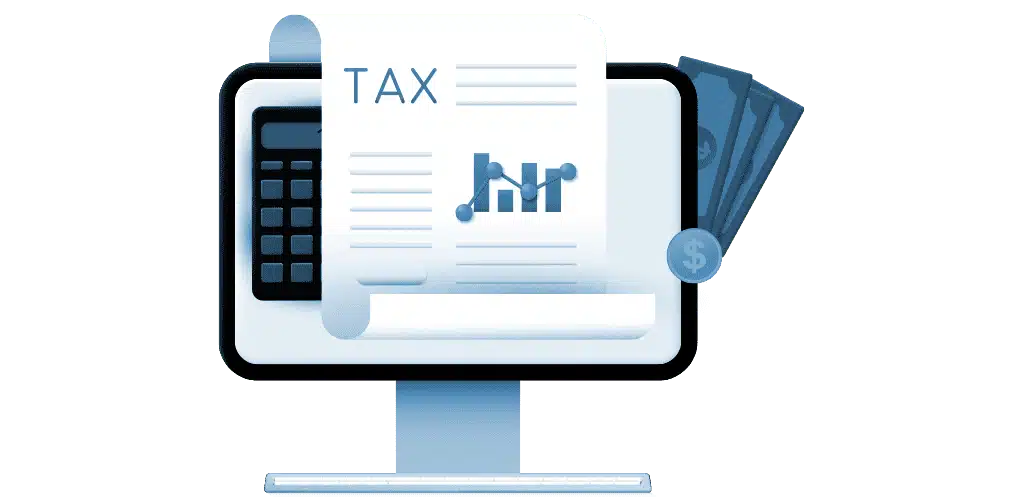Forex Taxation

Understanding how taxes apply to your Forex trading activities is crucial for any trader looking to maximise their profits and avoid potential penalties. In this guide, we will cover the basics of Forex trading taxation, particularly in Commonwealth countries like the UK, Canada, Australia, and New Zealand, and provide practical advice on managing your Forex taxes effectively.
Understanding Forex Taxation Principles
Forex trading taxation can be complex, with different rules and treatments depending on your country of residence and trading activity. Generally, profits from Forex trading are considered taxable income, but how these are taxed varies significantly by jurisdiction.
How Is Forex Taxed?
United Kingdom (UK)
In the UK, the tax treatment of Forex trading depends on the classification of the trader:
- Casual or Hobby Traders – If Forex trading is seen as a hobby or casual activity, any gains are generally considered capital gains and subject to capital gains tax (CGT). The annual CGT allowance can be used to offset some of these gains. Currently (2025), the HMRC requires these types of traders to pay a tax rate of 10% on their profits.
- Regular or Professional Traders – If trading is conducted regularly or as a primary source of income, profits are taxed as regular income, and the trader may be liable for income tax at their applicable rate. These types of traders pay a tax rate of 20%.
It is important for traders to accurately determine their trading status and report their profits correctly to HM Revenue & Customs (HMRC). You can find more details on the HMRC website.
Canada
In Canada, the Canadian Revenue Agency (CRA) generally taxes Forex trading income as either business income or capital gains:
- Business Income – For traders actively buying and selling currencies, the profits are usually considered business income and are fully taxable at the prevailing marginal tax rate.
- Capital Gains – If Forex trading is done less frequently and not as a primary source of income, it may be treated as capital gains, and only 50% of the gains are taxable. The other 50% is classified as non-taxable capital gains.
Traders should maintain accurate records of their transactions and consult with a tax professional to ensure compliance. For more information, visit the CRA website.
Australia
In Australia, Forex trading profits are taxed based on the trader’s intention and the nature of their trading activity:
- Personal Income – If Forex trading is carried out as a key source of income or regular activity, the profits are treated as personal income and taxed at the standard rates.
- Capital Gains Tax (CGT) – If trading is done less frequently or as an investment, any profits might be subject to capital gains tax. However, if the trading is deemed speculative, it could still be treated as ordinary income. Under this category, investors pay the prevailing CGT and qualify for a 50% discount.
Traders are encouraged to keep detailed records of all transactions and consult the Australian Taxation Office (ATO) to understand their specific obligations. More details can be found on the ATO website.
New Zealand
In New Zealand, Forex trading profits are generally subject to income tax:
- Income Tax – If trading is done frequently or constitutes the primary source of income, the profits are considered taxable income at the standard rate.
- Capital Gains Consideration – Although New Zealand does not have a separate capital gains tax, Forex gains might be taxed as part of ordinary income if the transactions are conducted with the intention of making a profit.
For more information, visit the New Zealand Inland Revenue Department (IRD) website.
Key Tips for Managing Forex Taxes
To effectively manage your Forex trading taxation, consider these strategies:
- Determine Your Trading Status – Understand whether your trading activities are considered casual, business income or capital gains based on the regulations in your country.
- Keep Detailed Records – Maintain comprehensive records of all your trades, including dates, amounts, exchange rates, and reasons for each transaction. This documentation is essential for accurate tax reporting. A good broker will make it easy for you to access your summarised trading history.
- Seek Professional Advice – Due to the complexities of Forex taxation in different jurisdictions, consulting with a tax professional familiar with local regulations can help ensure compliance and potentially minimise your tax liabilities.
- Understand Allowances and Deductions – Be aware of any available deductions or allowances, such as annual capital gains tax exemptions or business expense deductions, that might apply to your situation. Examples of possible deductions include subscriptions to financial news sites, education materials, and internet expenses.
Conclusion: Stay Informed to Manage Your Forex Taxes Effectively
Forex taxation rules vary significantly across different countries and it’s crucial to understand how these rules apply to your trading activities. By keeping accurate records, understanding your tax obligations, and consulting with professionals, you can effectively manage your Forex trading taxes and avoid unnecessary penalties.
Want to learn more about managing your Forex trading taxes? Sign up for our free webinar on Forex tax strategies today!


















